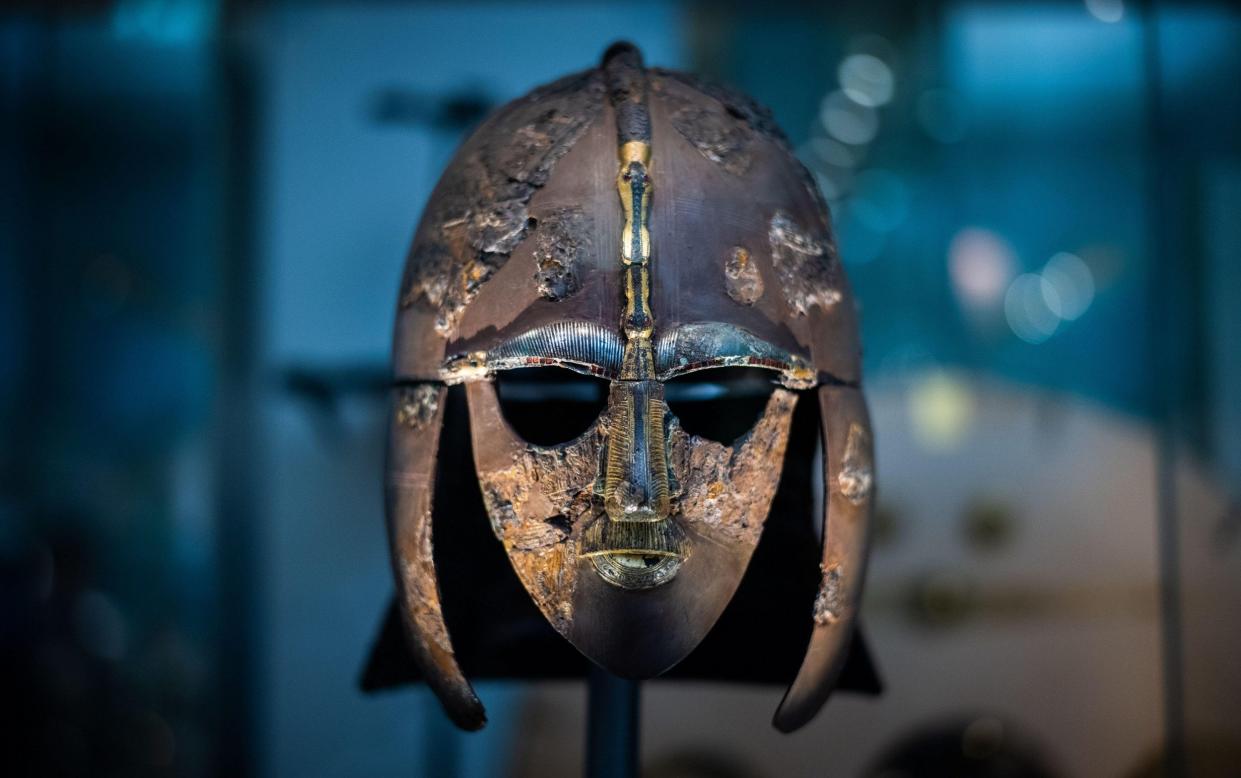‘Anglo-Saxon’ isn’t racist. It’s a source of English pride

No one who visits the Sutton Hoo gallery at the British Museum ever forgets the magnificent artistry of our Anglo-Saxon predecessors. We may think of the fourth to the 10th centuries as a “Dark Age”, ruled by crude barbarism and economic collapse, but the gold and bejewelled treasures they left behind are utterly spellbinding – in their way as good as anything produced by the Roman conquerors who came before.
Which is why it is regrettable that a distinguished journal that dominates the study of Anglo-Saxon history – simply and inoffensively entitled Anglo-Saxon England – is to be renamed by its no less reputable publisher, Cambridge University Press, under the bland new title Early Medieval England and its Neighbours.
Many believe it is due to the hue and cry about the term “Anglo-Saxon” in the US, where white supremacists have mobilised it as a racist variant of the term “Aryan”.
If that is the reason for the change, then as a historian I must protest. For a start, the term “Anglo-Saxon” is not a racial label, but a cultural one. Many English people are the product of a fusion between the Angle, Saxon, and Jute settlers, and the native Britons; the invaders coming from a wide arc of coastline stretching from the Netherlands to Jutland. Anglo-Saxon Britain was no apartheid state, but one fundamentally of rapid synthesis.
Indeed, the language we speak today was one noticeable product: just under half of the words we use remain of Anglo-Saxon origin. The Anglo-Saxon interpretation of Christianity, too, lives with us still: the Sutton Hoo treasures indicate Christianity was making inroads by the early seventh century, not long after the Jutish king of Kent accepted baptism from the first archbishop of Canterbury. Christian art of this period features stunning iconography derived from the pagan religions that came before.
Thereafter, Anglo-Saxon culture flourished in a myriad of ways: English monasteries produced startlingly beautiful manuscripts and Anglo-Saxon literature flowered, including rich alliterative poetry; the cultural ties extended to the royal courts in France and Germany.
King Alfred is the only English king to be known as “the Great”, not just for holding his own against Danish invaders but for his patronage of learning. The Anglo-Saxon kingdoms merged, divided and merged again, but out of their rivalries rose a large and wealthy kingdom, rich in wool sent to the looms of Flanders, and therefore highly attractive to waves of Viking raiders, followed in 1066 by William, duke of Normandy, himself of Viking descent.
The desirability of this kingdom reflects the high standard of artistic production, learning and prosperity that by the 11th century had few rivals in northern Europe. Its legacy has been extremely powerful. For if we dispense with the Anglo-Saxons, what happens to the name of England, the country of the Angles, or Essex and Sussex, territories of the Saxons? Can we talk any longer of the Anglophone countries? It is telling that even today Russian propaganda mockingly refers to us Britons as Anglosaksy, thinking it a term of derision. Such an insult makes one quite proud.
Any suggestion of broad ethnic or cultural cohesiveness inevitably generates suspicion in an academic world, where the fantasies of Critical Race Theory find racism under every ancient stone. Yet that is to forget that, even at the time, peoples saw each other as distinct cultures, with unique traits and practices.
Cambridge University Press would do well to acknowledge that its headquarters are in East Anglia. Instead of erasing the term “Anglo-Saxon”, it is far better to accept that our forebears oversaw a flourishing and fascinating period of this island’s history. It deserves a proper name, and it already has one.
David Abulafia is professor emeritus of Mediterranean history at the University of Cambridge


